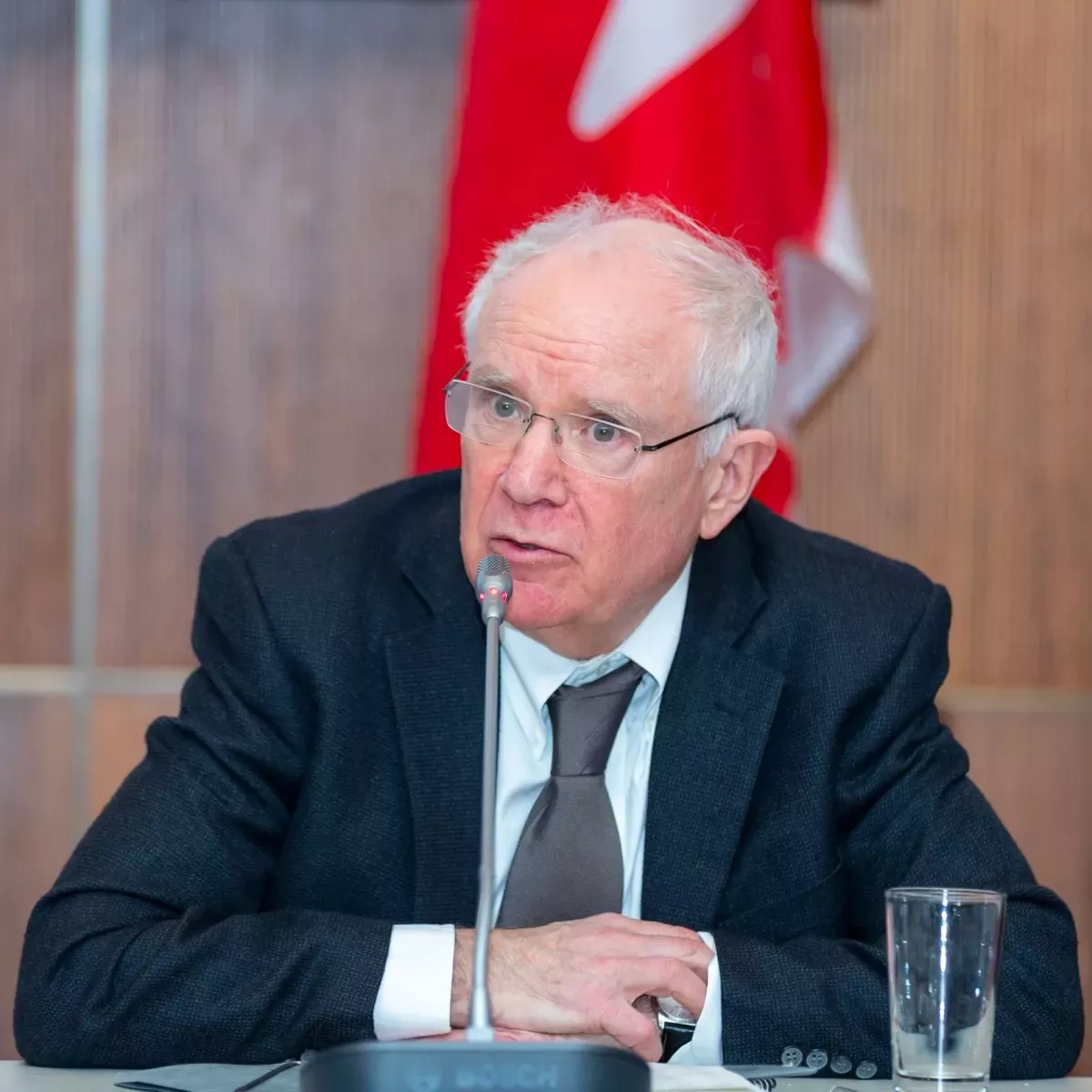Washington’s peace plan for Russia and Ukraine: pros and cons Expert opinions on Caliber.Az
The international community continues to discuss U.S. President Donald Trump’s 28-point plan on Russia and Ukraine, which, it must be admitted, has sparked a mixed and multi-directional reaction. Some see it as a new approach by the United States to resolve the conflict, while others raise questions about how it could be implemented.
In particular, in a video address to the nation, President Volodymyr Zelensky described the U.S. plan as follows: “Either a loss of dignity, or the risk of losing a key partner. Either complex 28 points, or an extremely harsh winter,” noting that Ukraine could face a very difficult choice.
Meanwhile, Russian President Vladimir Putin also commented on the Washington plan. At a meeting with permanent members of the Russian Security Council, he stated that Moscow had received the document and called it a “modernised” version of a plan that was allegedly discussed even before their meeting with Trump in Alaska.
Caliber.Az turned to political analysts from different countries to assess the potential of the U.S. initiative for peace between Russia and Ukraine.

The American political analyst and human rights advocate, former Executive Director of the International Helsinki Federation for Human Rights, Aaron Rhodes, believes that the so-called “plan for Ukraine” essentially does not originate from the United States and cannot truly be considered a plan.
"This is a strategically leaked, maximalist Russian proposal aimed at weakening both domestic and international support for Ukraine, serving as the basis for a coordinated Russian-American pressure campaign intended to force Ukraine to accept partition and fully submit to Russian influence. However, if the real intention is merely to make Ukraine give up vast territories and limit its defensive capabilities, then it will inevitably fail and only contribute to the continuation of the war. As a result, even more Ukrainian civilians will die from Russian attacks, and even more Russian soldiers will be killed in massive assaults to capture just a few more meters of a neighbouring country’s territory," Rhodes stated.

Political expert and Senior Research Fellow at the Hungarian Institute of International Affairs, Professor László Vasa, tends to believe that, from a foreign policy perspective, the latest U.S. peace initiative for Ukraine clearly demonstrates that the plan could become an important milestone on the path to ending the war. In his view, it is important to value anything that helps reduce tensions while remaining mindful of the risks that could affect long-term stability.
"Over the past few years, it has become clear that the conflict cannot be resolved militarily, and a negotiated solution must be found as soon as possible. From this perspective, a positive outcome of the U.S. peace plan is that it provides fresh momentum to diplomatic processes and restores the possibility of a political settlement in a situation where armed escalation offers no long-term solution for either Ukraine or Europe. The plan emphasises Ukraine’s sovereignty and includes support for reconstruction, which aligns with the Hungarian government’s goal of restoring economic and social stability in the region after the war," the political analyst said.
At the same time, he believes it is clear that the U.S. proposal contains several elements that could place a significant burden on Ukraine and even create new uncertainty—for example, sidelining its NATO membership aspirations or resolving the status of certain territories, which could call the regional security balance into question over the long term.
"From Hungary’s perspective—even from a pacifist standpoint—it is important that any settlement does not undermine the security architecture of Central and Eastern Europe, which currently provides stability within NATO and the EU. Another key factor, which the Hungarian government also regularly highlights, is the lack of European consultations. Peace can only be durable if the countries of the continent are not merely victims or bystanders, but full participants in the process. According to Hungary’s foreign policy approach, European security cannot be ensured through a peace plan developed without close cooperation and consultation with European states. One of the cornerstones of Hungary’s peace narrative is precisely that peace must be generated not by external coercion, but by the shared political will of the states in the region," the political analyst emphasised.
He also believes that peace can only be sustainable if the agreement includes security guarantees capable of preventing future conflicts. The Hungarian government’s pacifist stance reflects this as well: negotiations must take place, but a peace that sows the seeds of a new conflict cannot be supported.
"The emergence of the U.S. peace plan is, in itself, a step forward, as it restores a chance for diplomacy and creates an opportunity to continue settling the conflict at the negotiating table rather than through weapons. At the same time, in line with the Hungarian government’s peace approach, it is necessary to continue emphasising the following: peace cannot be one-sided, excessive concessions cannot be demanded from Ukraine, and the process of reconciling interests in Europe cannot be bypassed. A lasting and just peace can only be achieved if all stakeholders—Ukraine, Russia, the U.S., and Europe—make decisions that guarantee long-term security and stability in the region," Vasa stated.

Meanwhile, Ukrainian analyst and political strategist Taras Zahorodniy noted that the peace plan for Ukraine was not developed by White House institutions, but by specific individuals—Donald Trump’s special envoy Steve Witkoff and Putin’s representative for economic cooperation, Kirill Dmitriev.
"Most likely, it was shown to Trump, and he, having skimmed it, nodded and expressed approval—at least, that is the impression one gets from examining the document’s content. The plan reached Ukraine not through the State Department, but via U.S. generals—people without a diplomatic background, who did not have a clear understanding of their mission," the analyst noted.
According to him, this explains the lack of transparency in how the initiative was circulated.
"There is nothing new in the plan—it is just a list of Russian demands that have already been voiced multiple times, and they are unlikely to be accepted because Putin has no intention of ending the war," he emphasised.
First of all, because Russia’s official position remains unchanged: Ukraine must withdraw from four regions, abandon its NATO aspirations, reduce its army, refrain from possessing heavy weapons, and not produce missiles with a range of more than 40 kilometres.
The analyst also emphasised that he sees Kyiv’s position strengthening due to systematic strikes on critical Russian targets.
"Ukraine is now discussing the plan with its European partners because it has more leverage than it did in the spring, thanks to strikes on Russia’s energy infrastructure, refineries, military factories, and exports," Zahorodniy stressed.
On the other hand, he believes that Trump’s policy effectively deepens Russia’s economic setbacks, as the two countries have a fundamental conflict of interests regarding oil and gas sales: the United States is taking Russia’s share of the energy market in Europe and other regions, and sanctions are not expected to be lifted—at least, there is no clear promise to that effect included in the plan.
"This plan may be the last attempt to 'help Russia in its own way.' Washington does not want to see it fully turn into an ungovernable region, but most likely, Europe and Ukraine will refuse to implement the proposals, and that will be the end of it. Time is now working in Ukraine’s favour, while the outcome of the winter for Russia remains uncertain," Zahorodniy concluded.








